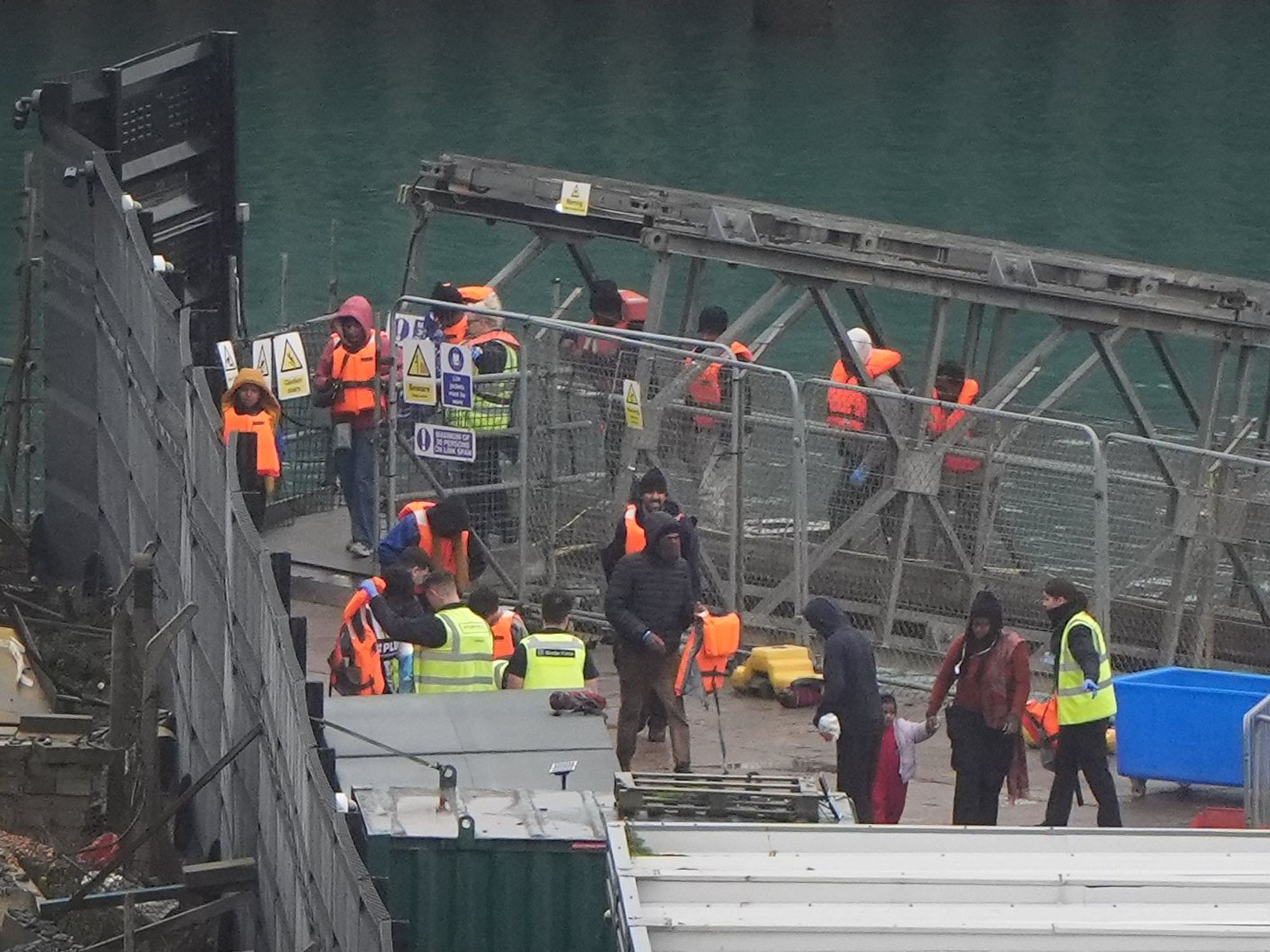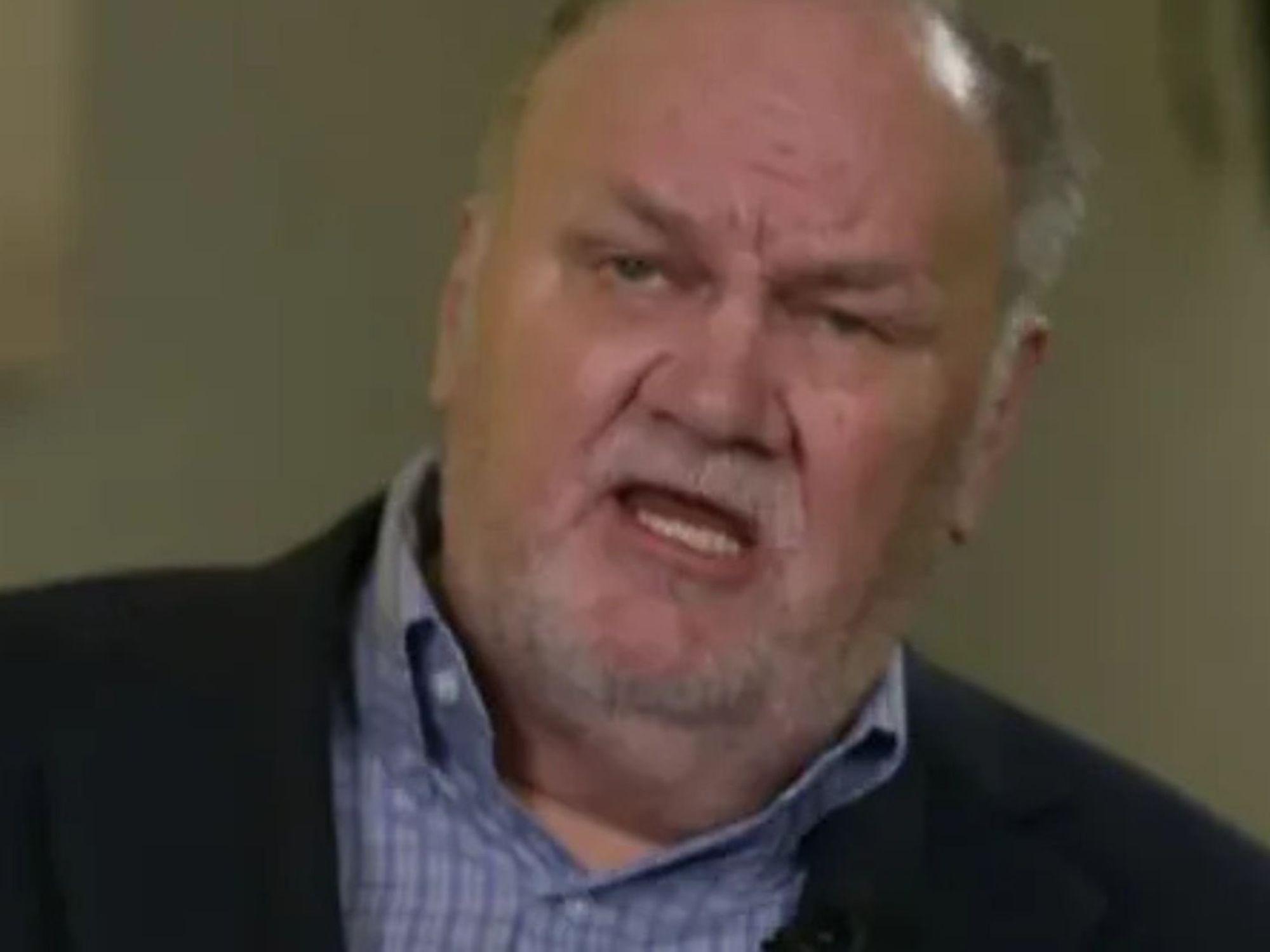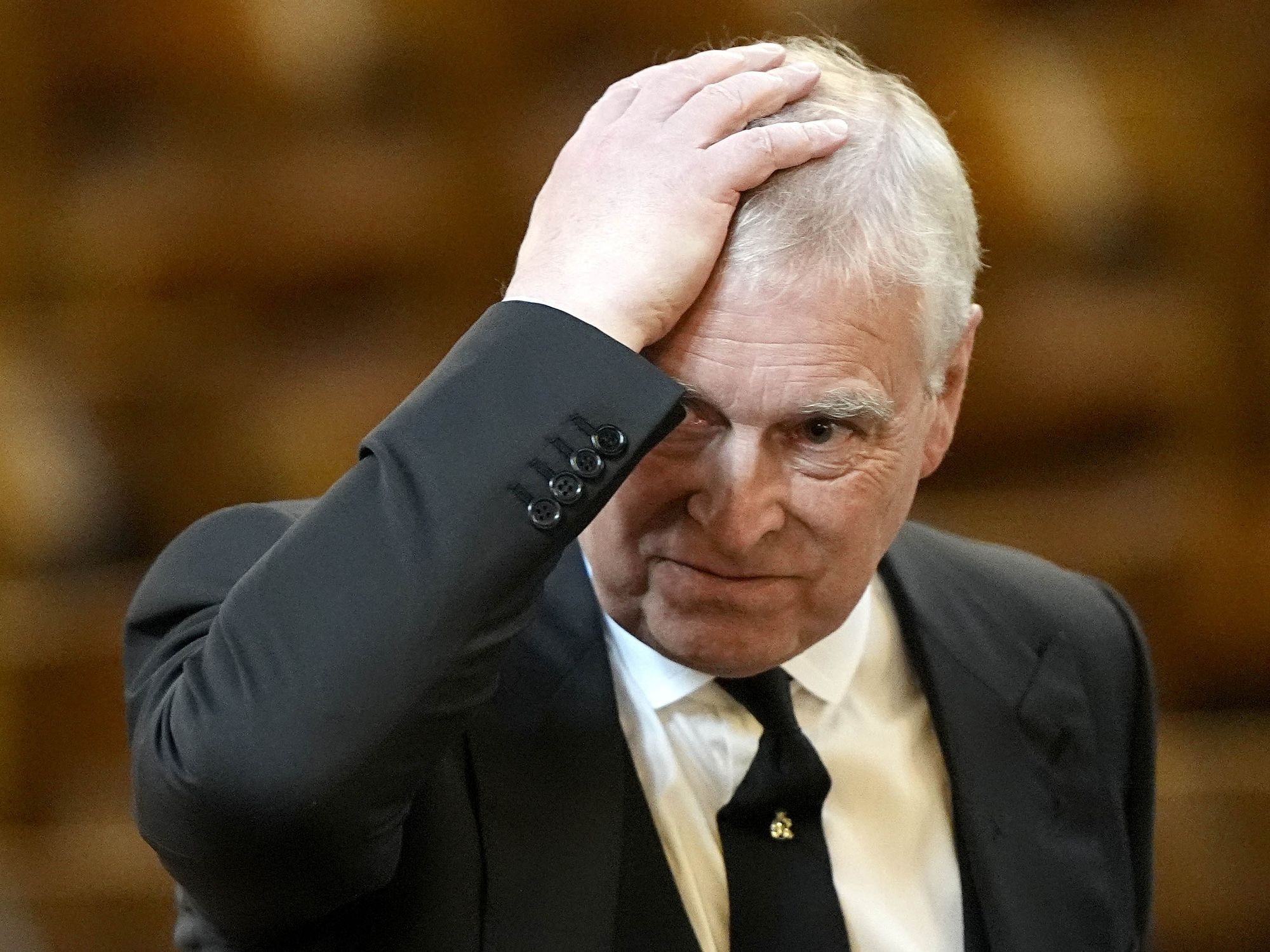Benefits Britain's HUGE Brexit trade deal will generate - and the MSM isn't reporting them...
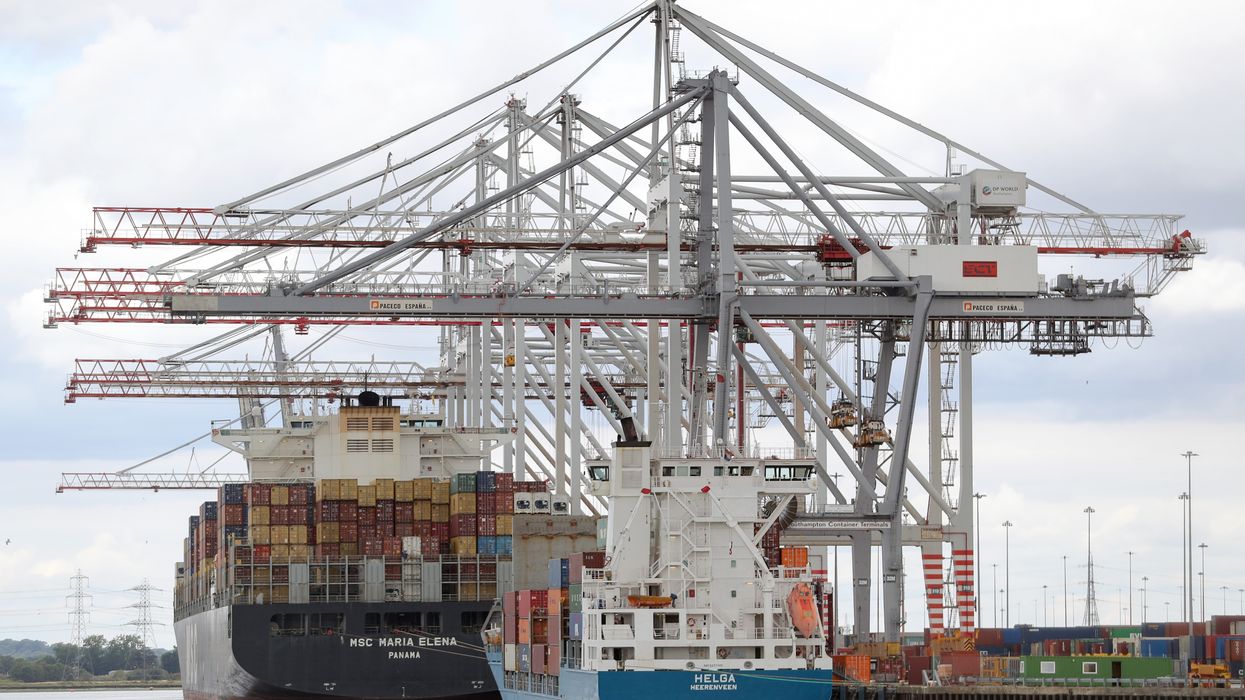
The UK received the final necessary national ratification formally to join the CPTPP over a week ago
|PA
The Peruvian Government ratified the accession of the UK to membership of the CPTPP
Don't Miss
Most Read
Latest
Britain is set to join one of the world's largest trading blocs, with more than 500 million people, bringing with it a range of benefits to the UK.
Just over a week ago, the UK received the final necessary national ratification formally to join the 'Comprehensive and Progressive for Trans-Pacific Partnership (CPTPP).
The news marked a key milestone in the UK's accession to one of the largest free trade blocs in the world, with a population over 30 per cent larger than that of the EU.
The CPTPP is a free trade agreement between 11 countries in the Asia-Pacific region: Australia, Brunei, Chile, Canada, Japan, Malaysia, Mexico, New Zealand, Peru, Singapore and Vietnam.
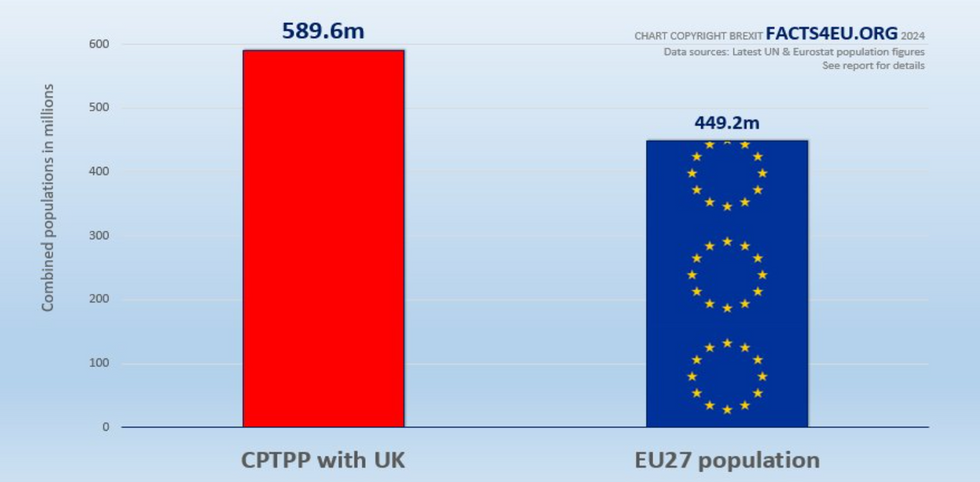
The UK is joining one of the largest free trade blocs in the world, with a population over 30 per cent larger than that of the EU
|© Brexit Facts4EU.Org 2024
An exclusive investigation by GB News and Facts4EU can reveal the very many benefits of a free trade deal ranging from economic to non-quantifiable benefits.
There are a number of non-quantifiable benefits of the new deal including cutting costs for British consumers of imported goods and providing more choices.
Catherine McBride, a Member of the Government's Trade and Agriculture Commission said: "The UK’s consumers will have improved access to a wide range of products. Examples include Vietnam’s and Malaysia’s clothing and footwear, to Malaysian palm oil, Canada’s wheat and soybean foodstuffs" and much more.
McBride added: "Many of these items are already imported by the UK from CPTPP countries but joining the CPTPP will simply remove the tariffs and quotas left over from our EU membership or the rolled-over EU trade deals. This should lead to lower prices for UK consumers as well as increased choice."
Furthermore, there is an important counter-seasonal nature of imports from CPTPP countries.
McBride explained: "The largest food exporters in the CPTPP are either in the southern hemisphere and so produce food in the opposite season to the UK and the EU or they are in the tropics and produce foods that can not be grown in the UK climate.
"Fears of UK farmers being driven out of business by imported food from the CPTPP are simply made up by people who haven’t even bothered to read the publicly available trade document."
The free trade deal also raises CPTPP countries' profiles in UK boardrooms as prospective trade markets.
A spokesman for Facts4 EU commented: "One area that is seemingly not understood is the effect of a new trade deal on raising awareness of a particular world market. In the monthly board meetings of companies across the country, a company’s sales and marketing director will typically report sales results and will comment on new opportunities.
"As business people become aware of a new trade deal such as CPTPP, they also become aware of the countries involved. Suddenly, the possibilities of exporting to a country previously not on a company’s radar begin to be discussed and explored, which can lead to more export sales. The same is true of purchasing directors, who start thinking about sourcing from better and cheaper suppliers in the new countries with which the UK has negotiated zero tariffs."
There are also a range of economic benefits of the free trade deal including cutting the UK's tariffs on 95 per cent of UK imports from CPTPP to zero and cutting UK consumer prices.
It could also encourage British business to compete globally and invest for future growth.
The deal will also open up CPTPP markets to UK exports of services - the sector representing 80 per cent of the UK economy.
Under the new deal, there will be no political interference and no annual financial payments.
The deal will see no sign-up laws made by foreign courts, no huge annual 'membership fee', no CPTPP Parliament, Common Agricultural Policy, Common Foreign Policy or Common Defence Policy.
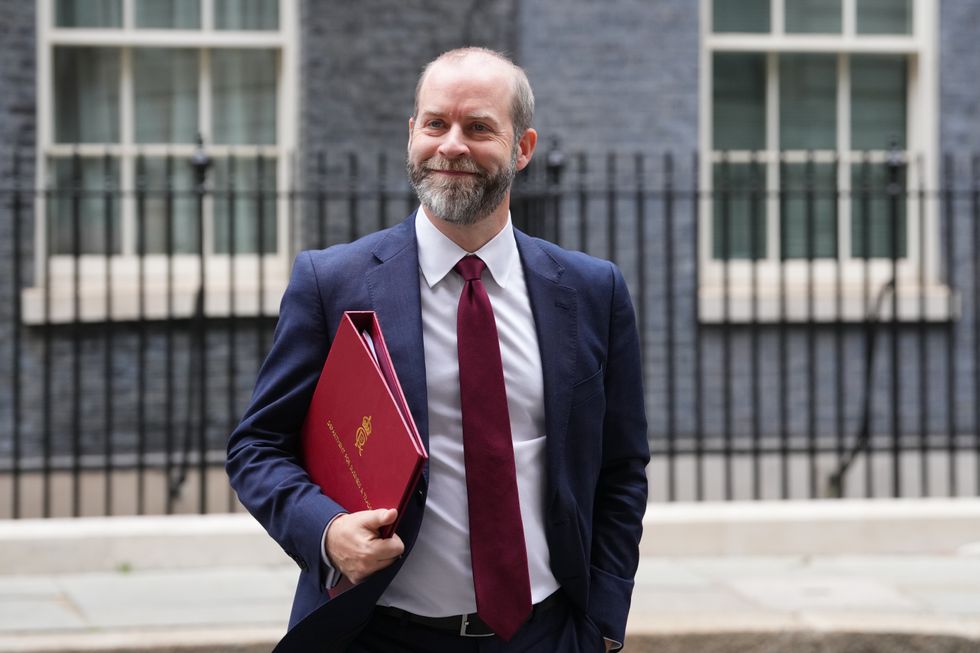
Business Secretary Jonathan Reynolds said the deal was a "real win for big-hitting British exporters"
|PA
LATEST FROM MEMBERSHIP:
There will also be no unelected Commissioners continually devising and imposing new rules and regulations on non-trade matters and only the products to be exported have to obey a CPTPP country's domestic standards.
The UK's free trade deal is also much better than existing deals with nine out of the 11 CPTPP members.
Most of these deals were 'rollover' deals on the UK's EU exit, based on the EU's own documents and terms.
These deals were necessary to ensure the continuation of trade but were not adequate and satisfactory to the UK as they barely included services and involved prohibitive quotas and high tariffs.
Secretary of State for Business and Trade Jonathan Reynolds spoke of the new deal in the Observer stating: "It will mark a major milestone in our journey to full membership of a bloc that will boast a combined GDP of £12trn after the UK joins."
He said the accession was a "real win for big-hitting British exporters", but would also offer a boost for smaller businesses who are keen to break into these markets for the first time.
However, mainstream media including the BBC and Sky News have not reported on the key Brexit breakthrough on their digital platforms.






